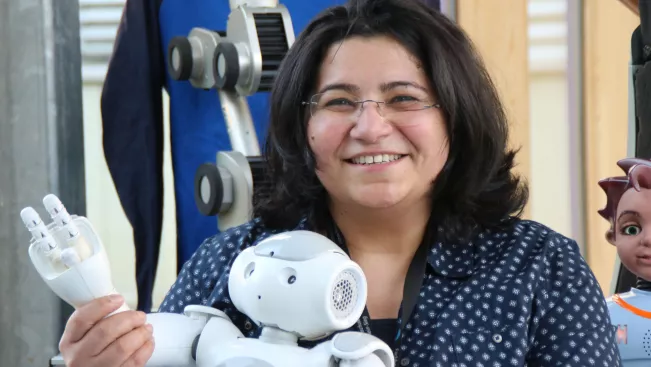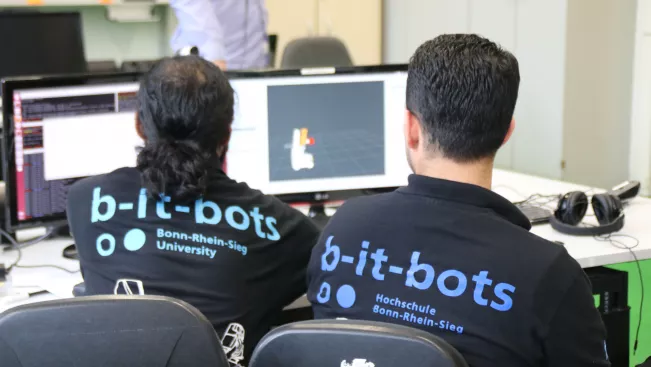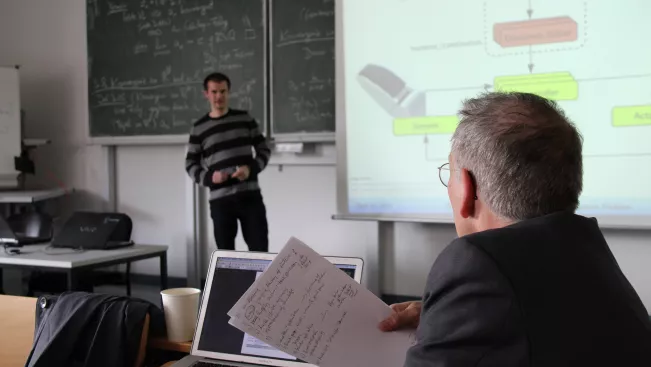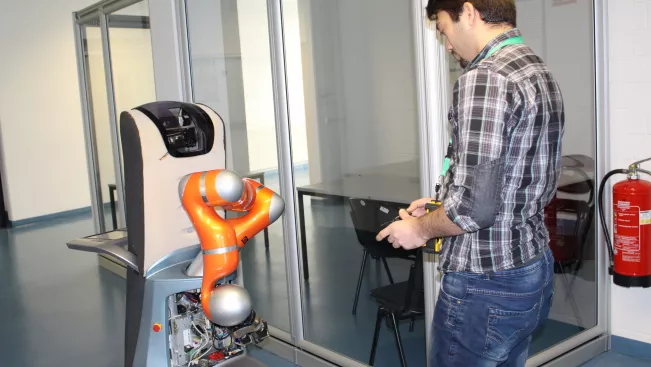Autonomous Systems (MSc)
MAS Course Structure
Individual mentoring characterizes the program, where students are guided through independent scientific work and through interdisciplinary cooperation in research and development projects.
The first semester consists of various compulsory courses and a seminar in scientific working. Students are introduced to several fields of robotics. They can then choose areas of interest where they want to aquire advanced skills and knowledge.
The second and third semesters contain taught courses as well as research and development projects which each account for 15 ECTS credits per semester. The projects are concluded by a written report plus an oral presentation. Another 15 ECTS points will be gained by exams at the end of each lecture period.
Examinations and proof of academic achievement take place during the studies. Examinations may be conducted in German or English, at the student's request. It is important to stress that other than public holidays, there are no "semester breaks", but rather lecture-free time, where students are expected to work full-time on their R&D project work. An extraordinary level of commitment, pro-activeness, self-discipline and the ability to work well under pressure is expected of candidates.





Lectures and Seminars (Overview)
(Please also see the current curriculum for more details on all modules.)
Compulsory Courses
- Advanced Software Technology
- Autonomous Mobile Robots
- Mathematics for Robotics and Control
- Artificial Intelligence
Seminars
These courses help the students to successfully carry out the R&D project and colloquium.
- Introduction to Scientific Working
- Advanced Scientific Working
Lab Classes
These classes provide students with valuable skills to help with their research work.
- Scientific Experimentation and Evaluation
- Software Development Project
Examples of Electives
- Adaptive Signal Processing
- Advanced Mathematics for Robotics
- Evolutionary Computation Theory and Application
- Fault Detection and Diagnosis
- Learning and Adaptivity
- Mobile Manipulation
- Multiagent and Agent Systems
- Neural Networks
- Planning and Scheduling
- Probabilistic Reasoning
- Robot Manipulation
Examples of Elective Consecutives
- Computer Vision
- Nonlinear Control
- Robot Perception
- Robust Control
Additionally, one R&D project must be completed.
Finally, a master's thesis project and colloquium must be successfully completed.
Preparatory courses
Any preparatory courses which may be needed will be individually directed and will total up to 30 ECTS points. These courses would serve to bring the student up to par on basic principles that are required to start the master's course of studies.
Study abroad
Study abroad is possible and encouraged.
Contact

Youssef Mahmoud Youssef
PhD Candidate - Researcher, Institute for Artificial Intelligence and Autonomous Systems, Assistant director & Study advisor, Master's Programme in Autonomous Systems
Location
Sankt Augustin
Room
C203
Address
Grantham-Allee 20
53757, Sankt Augustin
Telephone
+49 2241 865 9842Dokumente
to download